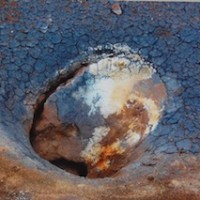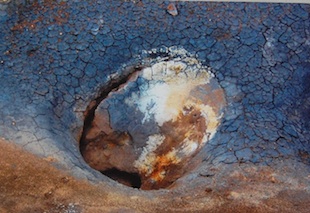Sister Water, she is very useful, and humble, and precious, and pure.

Huib Klamer, Secretary Philosophy and Corporate Social Responsibility Employers Organization VNO-NCW-MKB, the Netherlands

Kunstfoto’s van José Veugen en Yvonne Halvens
Shortly after the events in the Netherlands celebrating World Water Day on 21 and 22 March 2013, I have posed myself this question. I am a consumer of water. I know most water in the daily life of a citizen is used in showers (most important), sanitation, cooking, meals and washing. Most of these activities do not give much choice: they all have to be done. There is one exception: taking showers. Since World Water Day I don’t shower daily any longer, but every other day. I wash myself behind the washbasin.
Can I do more as a consumer? Therefore I should know more about the water footprints of the products I regularly use and consume. An example: I heard that a simple bottle of coke takes a lot of water: not the only the water in the beverage itself but also the water involved in the production of sugar – an important ingredient of the drink -. The same regards to beef and the animal feed needed for the beef. But I do not drink coke nor eat beef. So here I can’t make much of a difference.
To make a comparison: when I buy a fridge, a washer or a car, I want to know how much fuel it consumers; and producers give a lot of information about the energy-use. Not so in regard to water. Water now is a priceless ‘good’. I don’t consider the water footprint in my buying decisions. In the case of water – it is hard to say – the main improvements must be achieved by others: especially farmers and managers of factories, for they are the main users of water. But for them the challenge of discernment of impacts is the same as for me.
We all should repeat Saint Franciscus’ words in his Canticle of the Sun: ‘Sister Water, she is very useful, and humble, and precious, and pure.’
